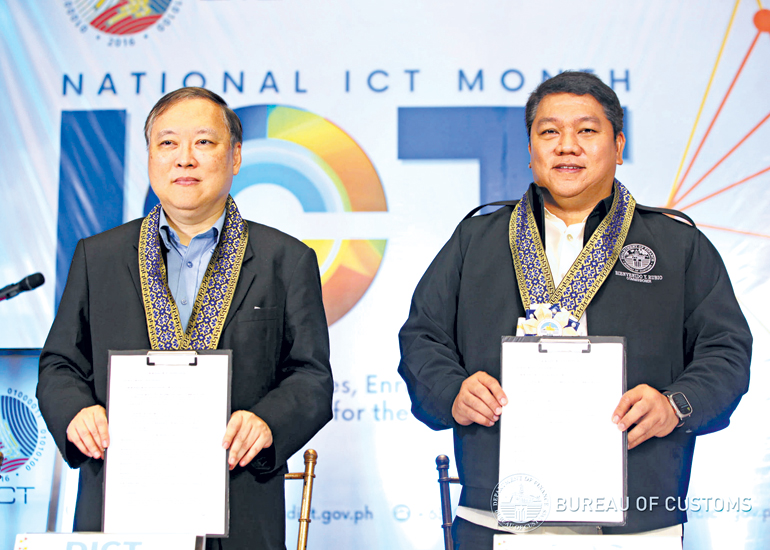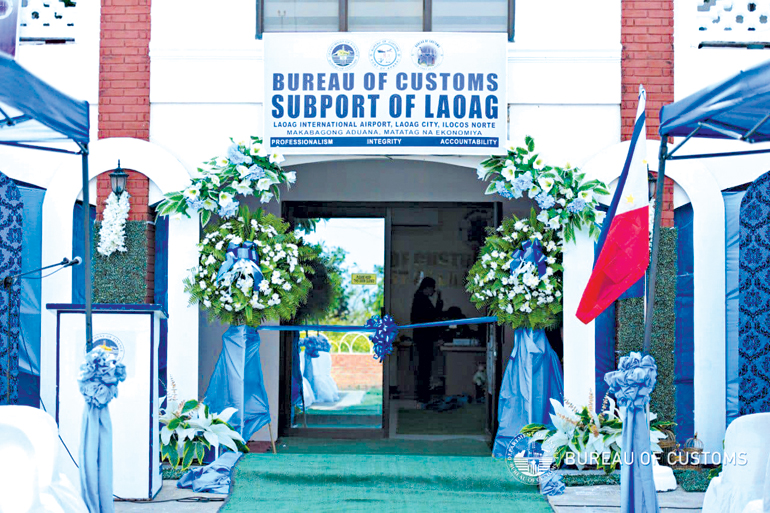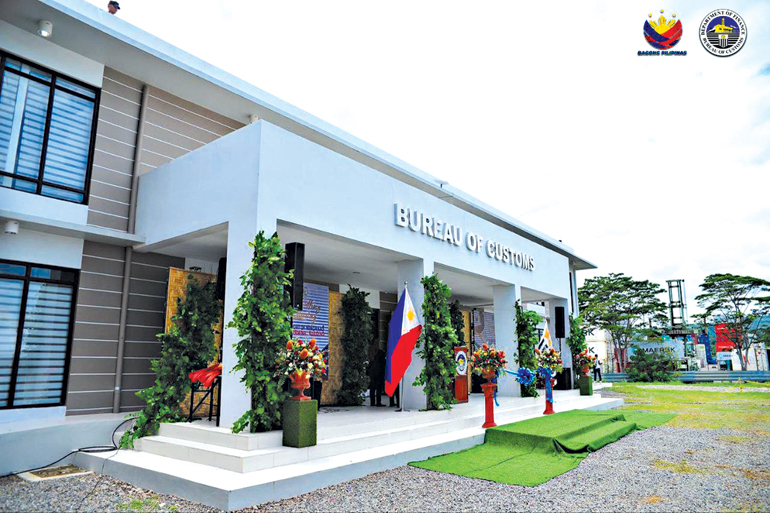BoC’s transformative projects and reforms under a new leadership

The Bureau of Customs (BoC) has a significant role in the country’s economy and acts as a gatekeeper for international trade and commerce. Its primary responsibility is to control and facilitate the movement of goods across borders, including a smooth flow of imports and exports.
Recently, the BoC has been progressing toward its goals under the leadership of Commissioner Bienvenido Y. Rubio. His leadership is focused on five priority programs: digitalization of customs processes, surpassing revenue targets, simplifying procedures for secure trade, curbing smuggling, and uplifting employee welfare and development.
Boosted integrity
As the central government organization entrusted with the duty of regulating and supervising the movement of goods in and out of the country, collecting customs duties and taxes, and preventing smuggling, the Bureau of Customs has recently implemented measures to improve the reliability and integrity of the agency.
In a report released by the Department of Finance (DoF), the importance of safeguarding the integrity of government agencies such as the BoC and the Bureau of Internal Revenue (BIR) has been highlighted to make tax payments more accessible and improve trade.
The DoF has stepped up its anti-corruption campaign through the Revenue Integrity Protection Service (RIPS) to achieve this goal. The RIPS conducts lifestyle checks and investigates allegations of corruption, including those involving the BoC. Because of this, the bureau has become more efficient and transparent, with streamlined processes and reduced waiting times for traders.
The DoF and the BoC have also collaborated with other agencies to improve trade facilitation. For instance, the BoC has partnered with the Philippine Ports Authority to upgrade port infrastructure and improve cargo-handling capacity, while the DoF has worked with the Department of Trade and Industry to simplify import and export procedures.
The BoC has also been recognized for its high complaint resolution rate. From January to June 2023, the agency achieved a compliance rate of 91.13% for the 72-hour compliance period and an overall resolution rate of 96.55%, guided by Executive Order (EO) No. 6 Series 2016.
In addition, BoC’s consistent performance in resolving complaints has led to several awards and commendations from the Civil Service Commission (CSC) and other government feedback mechanisms. This recognition is part of the agency’s efforts to efficiently process complaints through its Customer Assistance and Response Services, in line with the Anti-Red Tape Act and the Ease of Doing Business and Efficient Government Service Delivery Act of 2018.
As a result of these efforts, BoC has seen a significant increase in revenue collection, which has allowed the government to fund crucial infrastructure projects and social services.
Upgraded operations

The BoC achieved a remarkable feat by surpassing its revenue collection target in 2023, collecting an amount of P883.624 billion, which exceeded the P874.16 billion target by 1.0%.
According to a report by the Philippine News Agency, the BoC has taken strict measures to strengthen border protection by pursuing criminal cases against smugglers. As of Dec. 31, 2023, a total of 90 criminal cases have been filed before the Department of Justice, out of which 60 cases are related to agricultural smuggling.
To prevent smuggling, the bureau is also monitoring importers and brokers. As part of its monitoring efforts and post-evaluation of importers and brokers, BoC revoked the accreditation of 118 importers and 46 customs brokers found to have violated the provisions stipulated in the Customs Modernization and Tariff Act.
These measures taken by BoC are considered necessary to ensure that the borders are protected from smugglers, maintain the integrity of the agency, and prevent any illegal activities that may harm the country’s economy in the long run.

This year, the BoC has been tasked to collect more than P1 trillion under the proposed Budget of Expenditures and Sources of Financing (BESF). According to Mr. Rubio, he is hopeful that the improved economic conditions will help boost trade and increase revenue for the government.
“I’m confident the government is doing its job and in some of the economic meetings that I attended. Our secretaries are very optimistic that the interest rates will decrease. The projections for next year will be good,” Mr. Rubio was quoted as saying in Filipino.
The BoC has also made substantial progress in digitalizing customs processes, partnering with the Department of Information and Communications Technology (DICT) to streamline customs procedures through digitalization.
A report stated that the bureau has modernized its operations, reaching a 96.39% rate of digitalization for 160 out of 166 customs procedures under the 2021 Citizen’s Charter. Their efforts to enhance its operations include developing three new systems: the E-Service Catalog System, the Document Management System, and the Over Staying Cargo Tracking System.
In addition, the BoC introduced automation projects that proved to be game-changers in transforming the government agency, helping the BoC to streamline its digital operations and improve its efficiency. These projects included a new and improved BoC website, the implementation of the Digital Origin Review System, the Automated Export Declaration System, and the Customs Auction Monitoring System.
According to Former Finance Secretary Benjamin E. Diokno, the modernization efforts of the BoC have been recognized as the Philippines ranks the second-best among ASEAN countries in a United Nations global survey on trade facilitation.

This year, the BoC is expected to continue modernizing its customs administration with the help of the World Bank. The institution has announced $88.28 million in financing for the Philippine Customs Modernization Program, which aims to support the digitalization of the bureau.
With these at hand, the bureau’s digitalization efforts seek to achieve a fully automated customs procedure, making international trade transactions more efficient, transparent, and compliant with international standards.
Furthermore, Mr. Rubio had spearheaded some initiatives to enhance organizational development and boost employee morale at the BoC. One of these includes the hiring of 66 new personnel and the promotion of 186 existing personnel, addressing the bureau’s staffing and productivity challenges.
The BOC has also launched its first Employees’ Consultative Assembly, a crucial step in enhancing employees’ confidence by allowing employees to communicate their concerns, suggestions, and feedback directly to management. — Mhicole A. Moral



